28 Mar2022
By Nicole Dunn

As another Women’s History Month comes to an end, AACTE wants to acknowledge the achievements of women-identified leaders in educator preparation. The Association kicked off its celebration by asking you, AACTE members, to identify a leader who affected your work as an educator through their mentorship, research, and colleagueship. AACTE is honored to share those responses here and want to congratulate all women members for their contributions to their classrooms and the field each day.
Joan Rhodes, chair, Department of Teaching and Learning and associate professor, Virginia Commonwealth University School of Education
“Dr. Rhodes models skillful leadership and compassion. A transformational leader, she is responsive to the financial and structural needs of the larger institution, while prioritizing the human experience of faculty, staff, and students. She treats department members with dignity, soliciting feedback and input regularly. This collaborative approach led to adapting department practices. Voices previously unheard are now heard and respected. She quietly elevates and lifts all her colleagues and students, creating pathways to leadership roles for all members of the community. She makes me, a junior faculty member, feel seen, heard, and valued while I continue to develop my leadership skills.”
28 Mar2022
By U.S. Department of Education
Today, U.S. Secretary of Education Miguel Cardona issued a nationwide call to action for states, higher education leaders, and schools to tap federal resources and work together to address the teacher shortage and aid student recovery. Today’s announcement builds on President Biden’s call in the State of the Union encouraging leaders to use American Rescue Plan funds to address this critical challenge schools and districts across the country are facing. The call to action coincides with Secretary Cardona’s participation in the Carnegie Foundation for the Advancement of Teaching’s Summit on Improvement in Education in San Diego.
“I have always known that a well-prepared, well-supported, well-compensated, and diverse educator workforce is the foundation for student success. Educator vacancies and other staff shortages represent a real challenge as our schools work to recover, falling hardest on students of color, students in rural communities, students from low-income backgrounds, students with disabilities, and multilingual learners. That’s why I’m proud that the American Rescue Plan has equipped states, school districts, and colleges and universities that prepare our educators with unprecedented financial resources to help overcome this challenge,” said Secretary Cardona. “Today, I am calling on states, districts, and institutions of higher education to use ARP funds to address the teacher shortage and increase the number of teacher candidates prepared to enter the teaching profession. My team will continue to advise state and local leaders on how they can seize this moment; put COVID relief dollars to work in our schools; and achieve a lasting, equitable recovery for our students.”
25 Mar2022
By Jacqueline Rodriguez and Nicole Dunn
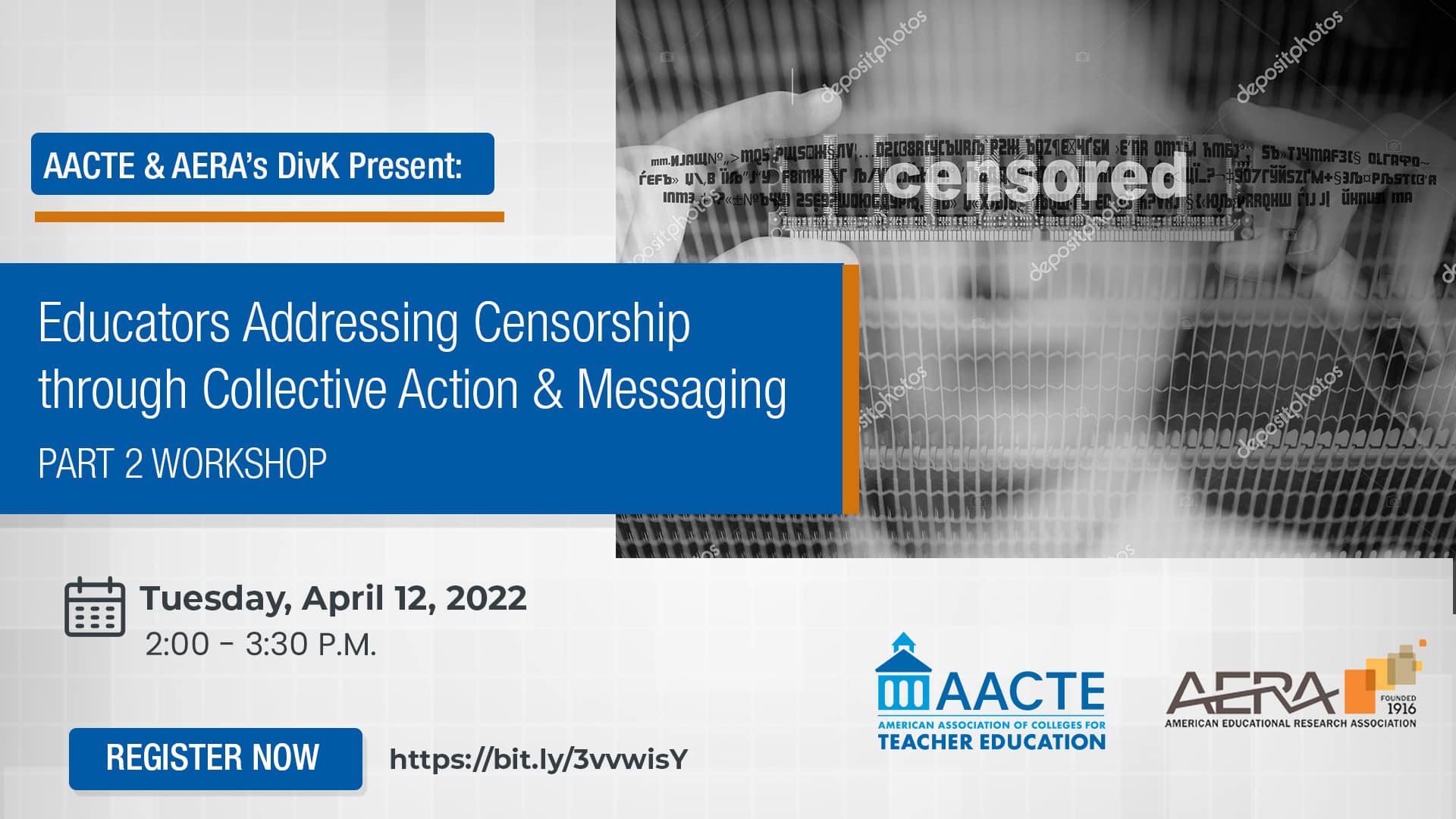 AACTE continues its collaboration with AERA’s Division K: Teaching and Teacher Education to produce an in-depth, scaffolded, three-part series of professional learning opportunities addressing the recent uptick in education censorship across the nation. The first presentation of the series took place as a Deeper Dive session during AACTE’s Annual Meeting in New Orleans. On April 12, AACTE and AERA Division K will co-host a workshop: Educators Addressing Censorship through Collective Action & Messaging, which will include members of our P-20 education system. The third session in our series is a Town Hall taking place during the AERA Conference in late April where Lynn Gangone, AACTE CEO and president will be moderating alongside AERA Executive Director, Felice Levine, and Division K Chair, Dorothea Anagnostopoulos.
AACTE continues its collaboration with AERA’s Division K: Teaching and Teacher Education to produce an in-depth, scaffolded, three-part series of professional learning opportunities addressing the recent uptick in education censorship across the nation. The first presentation of the series took place as a Deeper Dive session during AACTE’s Annual Meeting in New Orleans. On April 12, AACTE and AERA Division K will co-host a workshop: Educators Addressing Censorship through Collective Action & Messaging, which will include members of our P-20 education system. The third session in our series is a Town Hall taking place during the AERA Conference in late April where Lynn Gangone, AACTE CEO and president will be moderating alongside AERA Executive Director, Felice Levine, and Division K Chair, Dorothea Anagnostopoulos.
22 Mar2022
By Jacqueline E. King, Ph.D.
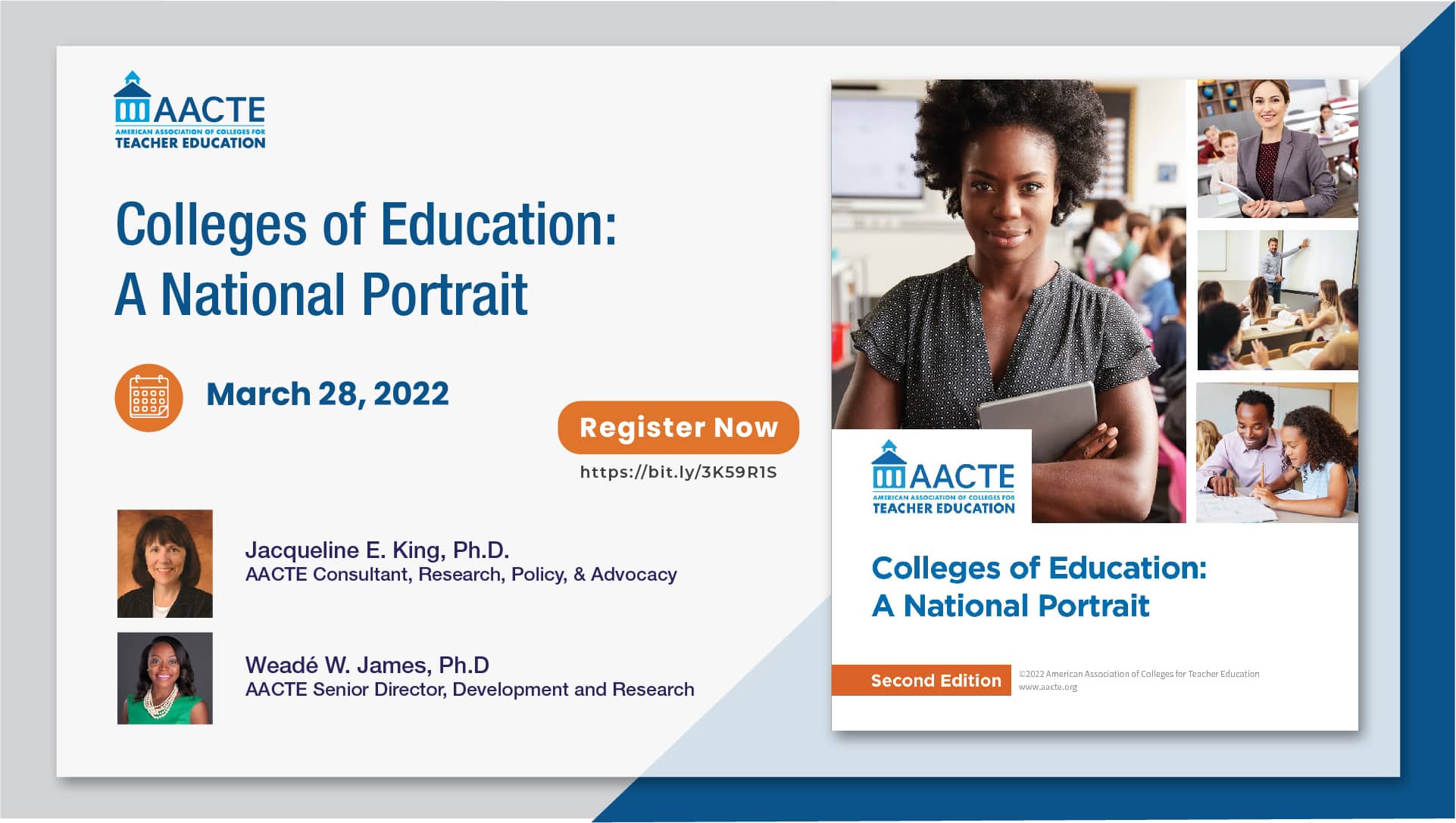 The Colleges of Education: A National Portrait is AACTE’s signature report on schools, colleges, and departments of education. The second edition was released today and AACTE is hosting a webinar to review its findings on Monday, March 28 at 1:00 p.m. ET.
The Colleges of Education: A National Portrait is AACTE’s signature report on schools, colleges, and departments of education. The second edition was released today and AACTE is hosting a webinar to review its findings on Monday, March 28 at 1:00 p.m. ET.
This report is a major vehicle for AACTE to tell the story of colleges of education nationwide and for members to situate their own programs in the broader context of the trends that are shaping the profession. Education preparation program faculty are encouraged to use it to communicate with their institution’s leadership, PK-12 partners, and other key cnstituents about the issues, trends, and challenges impacting educator preparation.
This year, in addition to describing the work of colleges of education, the people who do that work, and the students they serve, the National Portrait includes a special analysis on the important contributions that community colleges make to educator preparation.
Join me and my co-author Weadé James on March 28 for this member-only, informative webinar. Register today.
22 Mar2022
By AACTE
 Today, AACTE (American Association of Colleges for Teacher Education) releases the second edition of Colleges of Education: A National Portrait. In addition to updating information on colleges of education and their leaders, faculty, and students, this edition features a special analysis on the contributions of community colleges to educator preparation.
Today, AACTE (American Association of Colleges for Teacher Education) releases the second edition of Colleges of Education: A National Portrait. In addition to updating information on colleges of education and their leaders, faculty, and students, this edition features a special analysis on the contributions of community colleges to educator preparation.
This update of AACTE’s signature report offers a comprehensive picture of the nation’s schools, colleges, and departments of education: the work that they do, the people who do that work, and the students they serve. The report describes the key trends and challenges in meeting the nation’s need for highly skilled educators.
Colleges and universities can benchmark their programs against peers, gain innovative ideas to grow and diversify enrollment through community college partnerships, and describe to stakeholders the challenges confronting educator preparation.
15 Mar2022
By Kaitlyn Brennan
 This weekly Washington Update is intended to keep members informed on Capitol Hill activities impacting the educator preparation community. The views expressed in this post do not necessarily reflect the views of AACTE.
This weekly Washington Update is intended to keep members informed on Capitol Hill activities impacting the educator preparation community. The views expressed in this post do not necessarily reflect the views of AACTE.
On the eve of the one-year anniversary of the passage of the American Rescue Plan Act, Congress passed a Fiscal Year (FY) 2022 Omnibus Spending Bill. The FY22 bill includes increases for education, but not nearly at the level that was originally requested by the Biden Administration. Considerable work lies ahead to secure a robust federal investment to support rebuilding and diversifying the special educator and specialized instructional personnel pipeline.
15 Mar2022
By Nicole Dunn

You may have heard the term “intersectionality” a lot lately, a term coined by Kimberlee Crenshaw in 1989 to describe how systems of oppression overlap to create distinct experiences for people with multiple identity categories. Those familiar with Crenshaw’s work know that the term was once used academically purely to shape legal conversations about racial and social injustice in systems, most notably policing. Now, “intersectionality” is part of the national lexicon, being used in the forefront of the country’s debates around racial and social injustice in the last few years; however, that should not dissuade educators from looking at their work through this lens.
For educators, intersectionality is used to frame the experiences of historical and current figures who have multiple identities when they teach. For example, during Women’s History Month, it’s important for educators to consider how the experiences of women of color, queer and trans women, women with disabilities, women with different body types, and multi-lingual women differ, and then represent them as such in their curriculum. Educators can build this intersectional teaching muscle by having conversations about their diverse experiences with one another and, as teachers, share research and resources that elevate the truth of women with intersectional identities in our schools. This is why, on International Women’s Day, we asked several of our members and staff to answer the question:
Why is integrating women’s history through an intersectional lens important to you and your work in education?
08 Mar2022
By Nicole Dunn

AACTE launches it celebration of 2022 Women’s History Month on International Women’s Day with a blog on the “herstory” of women leaders in education preparation. To help AACTE celebrate women leaders in the profession, please nominate a women-identified leader in educator preparation whom you would like us to recognize in Ed Prep Matters before the month ends.
The term “herstory” was coined in 1970 by Robin Morgan, editor of Sisterhood is Powerful, An Anthology of Writings from the Women’s Liberation Movement. It is used today to acknowledge the way in which women have been left out of our historical narratives. Most schools teach history through the lens of America’s default norms: white, cisgendered, and male. AACTE is committed to supporting its membership with their efforts to prepare candidates to equitably represent intersectional female narratives across disciplines.
08 Mar2022
By Jacqueline E. King, Ph.D.
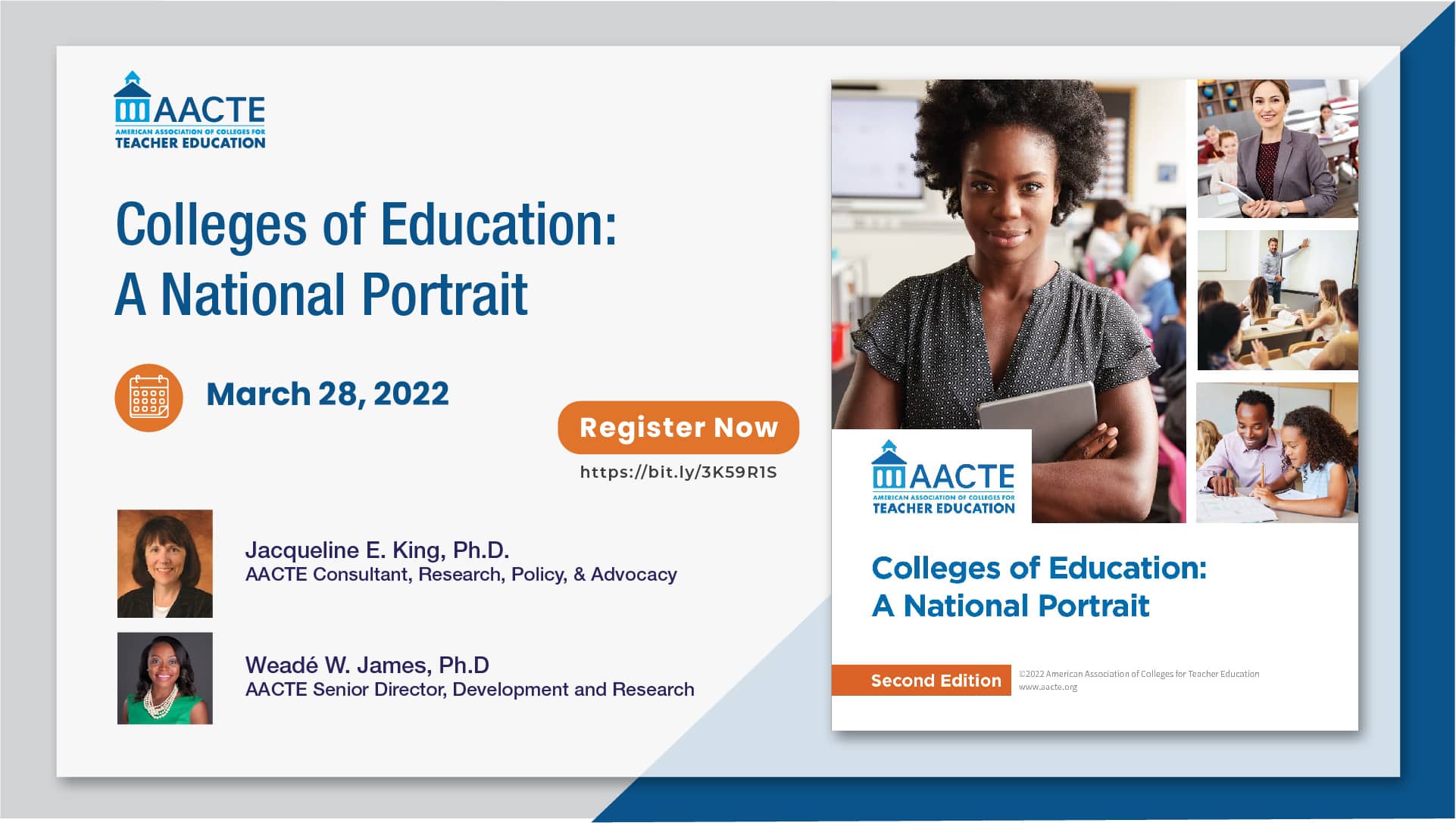 AACTE will soon release the second edition of its signature report, Colleges of Education: A National Portrait. In addition to updating information on colleges of education and their leaders, faculty, and students, this edition features a special analysis on the contributions that community colleges make to educator preparation. Topics to be covered will include:
AACTE will soon release the second edition of its signature report, Colleges of Education: A National Portrait. In addition to updating information on colleges of education and their leaders, faculty, and students, this edition features a special analysis on the contributions that community colleges make to educator preparation. Topics to be covered will include:
- Scope of educator preparation in the U.S.
- Trends in undergraduate and graduate degrees conferred in education
- Demographics of leaders and faculty
- Student demographics
- Contributions of community colleges to educator preparation
22 Feb2022
By Anthony Pittman and Anthony Broughton
This post is part of AACTE’s Black History Month 2022 Blog series.
 Claflin University is pleased to have been invited by AACTE to help celebrate Black History Month. Founded in 1869, primarily to educate freed slaves, Claflin was the first historically Black college/University (HBCU) in South Carolina to open its doors to all people – regardless of race, class, gender, and/or any of the other social constructs that have been divisive across many components of society. For over 150 years, Claflin has remained committed to her mission, one in which diversity and inclusion are central to the development of visionary leaders and scholars in their chosen fields of study. At Claflin, our belief is that our graduates will make their marks on the world by leading innovative changes in various industries and professions across the globe.
Claflin University is pleased to have been invited by AACTE to help celebrate Black History Month. Founded in 1869, primarily to educate freed slaves, Claflin was the first historically Black college/University (HBCU) in South Carolina to open its doors to all people – regardless of race, class, gender, and/or any of the other social constructs that have been divisive across many components of society. For over 150 years, Claflin has remained committed to her mission, one in which diversity and inclusion are central to the development of visionary leaders and scholars in their chosen fields of study. At Claflin, our belief is that our graduates will make their marks on the world by leading innovative changes in various industries and professions across the globe.
 Claflin University is located in the small city of Orangeburg, South Carolina and is affiliated with the United Methodist Church. It is accredited by the Southern Association of Colleges and Schools Commission on Colleges (SACSCOC) and approved by the University Senate of the United Methodist Church. Among her numerous accolades, Claflin is ranked the #1 HBCU in the state, and for its 11th consecutive year, the University is in U.S. News & World Report’s “Top 10 of the Nation’s Best HBCUs.” As the oldest HBCU in the state of South Carolina, Claflin University’s commitment to teacher eucation has been consistently strong since its founding. She has produced teachers, principals, superintendents, and numerous other educational professionals who have made significant contributions to the myriad classrooms and other educational contexts within the state of SC and indeed across the United States and the world at large.
Claflin University is located in the small city of Orangeburg, South Carolina and is affiliated with the United Methodist Church. It is accredited by the Southern Association of Colleges and Schools Commission on Colleges (SACSCOC) and approved by the University Senate of the United Methodist Church. Among her numerous accolades, Claflin is ranked the #1 HBCU in the state, and for its 11th consecutive year, the University is in U.S. News & World Report’s “Top 10 of the Nation’s Best HBCUs.” As the oldest HBCU in the state of South Carolina, Claflin University’s commitment to teacher eucation has been consistently strong since its founding. She has produced teachers, principals, superintendents, and numerous other educational professionals who have made significant contributions to the myriad classrooms and other educational contexts within the state of SC and indeed across the United States and the world at large.
22 Feb2022
Driving the National Conversation to Recruit, Sustain, and Retain Diverse Teaching Candidates
By Amanda Morales
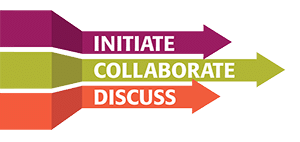 The AACTE Diversified Teacher Workforce Topical Action Group (TAG) will convene Pk-20 practitioners, researchers, and community stakeholders to discuss how to bolster collective efforts to recruit, sustain and retain teachers of color. The preconference event will take place on Thursday, March 3 at the Sheraton New Orleans Hotel, Grand Ballroom B, 9:00 a.m. – 3:30 p.m.
The AACTE Diversified Teacher Workforce Topical Action Group (TAG) will convene Pk-20 practitioners, researchers, and community stakeholders to discuss how to bolster collective efforts to recruit, sustain and retain teachers of color. The preconference event will take place on Thursday, March 3 at the Sheraton New Orleans Hotel, Grand Ballroom B, 9:00 a.m. – 3:30 p.m.
Across the field of education (PK-20) students, teachers, administrators, teacher educators/professors, and program leaders continue to witness and lament the chronic disparities in representation and lack of ethno-racial and linguistic diversity among teachers (relative to their students) in our nation’s schools. And in the wake of a global pandemic, enduring civil unrest, the impending mass teacher exodus, and calls for racial justice related to systemic anti-Black, anti-Asian and anti-immigrant sentiments within all aspects of society, educational institutions are being forced to engage in introspection with greater magnitude. Teacher preparation programs in particular are feeling increased pressure to recruit, retain and effectively prepare a highly-qualified, racially-literate, and ethno-racially diverse pool of candidates as districts scramble to hire teachers with the content knowledge and pedagogical skills as well as the cultural and linguistic competencies needed to meet the needs of today’s students.
18 Feb2022
By Dawn Williams
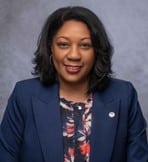 This post is part of AACTE’s Black History Month 2022 Blog series.
This post is part of AACTE’s Black History Month 2022 Blog series.
As we are nearing the end of another Black History Month, this year somehow feels different. On one hand the increased representation of diversity in marketing and corporate settings is promising. On the other hand, the resurgence of attacks on the use of school curriculum that represents diverse lived experiences is troubling. We find ourselves fighting a history of structural racism while also trying to safeguard our health against a global pandemic. However, what has not changed is our steadfast commitment to “balance the scales for the disenfranchised and promote an America that is devoid of inequalities.”
15 Feb2022
By Nicole Dunn
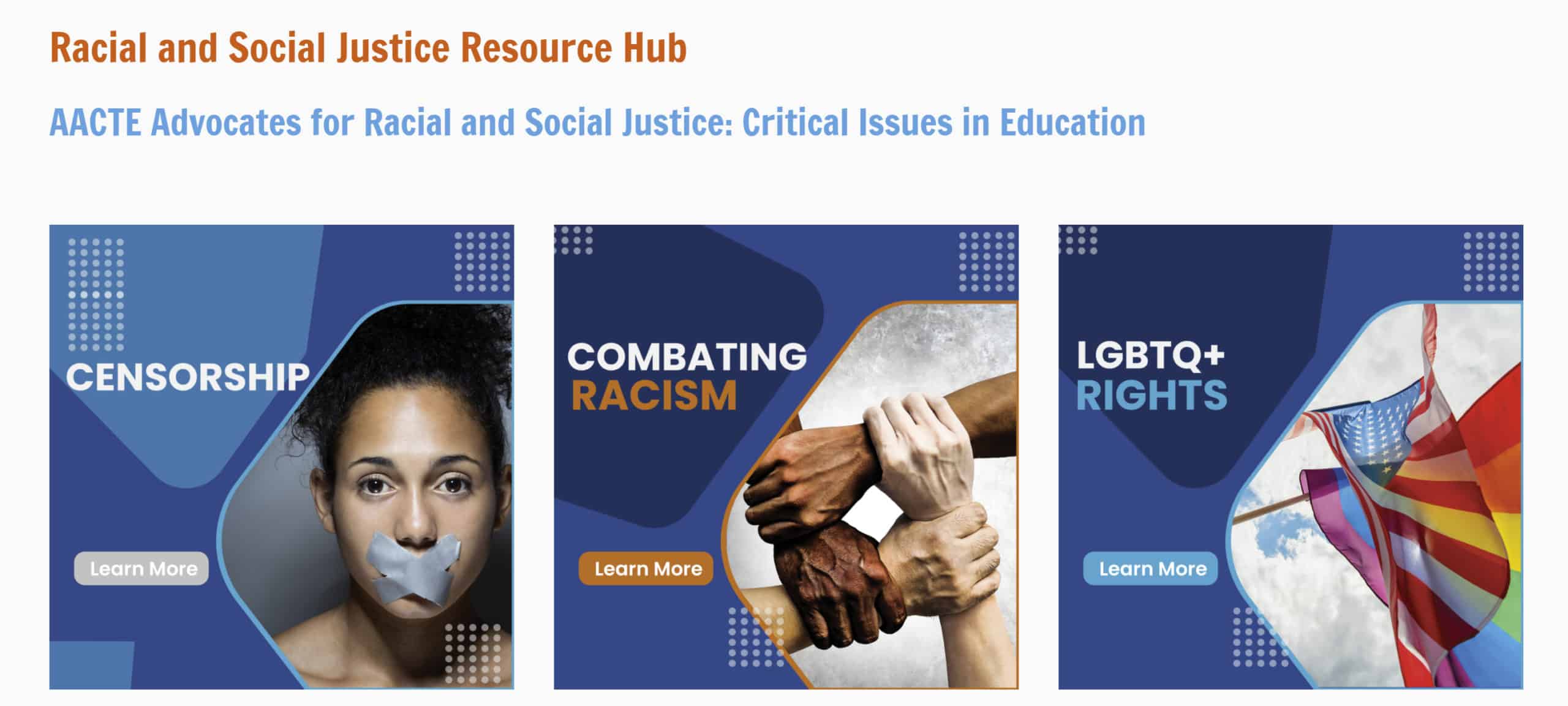 This month, AACTE launched its Racial and Social Justice Hub, a place to learn, grow, inquire, and share resources with one another that address social injustices and advocate for the preparation of profession-ready educators. To help ensure AACTE is meeting the needs of the educator preparation community in advancing racial and social justice work, you are invited to complete a 90-second survey to inform future content – it’s not for you, without you.
This month, AACTE launched its Racial and Social Justice Hub, a place to learn, grow, inquire, and share resources with one another that address social injustices and advocate for the preparation of profession-ready educators. To help ensure AACTE is meeting the needs of the educator preparation community in advancing racial and social justice work, you are invited to complete a 90-second survey to inform future content – it’s not for you, without you.
11 Feb2022
By Fernanda Pires and Danielle Dimcheff
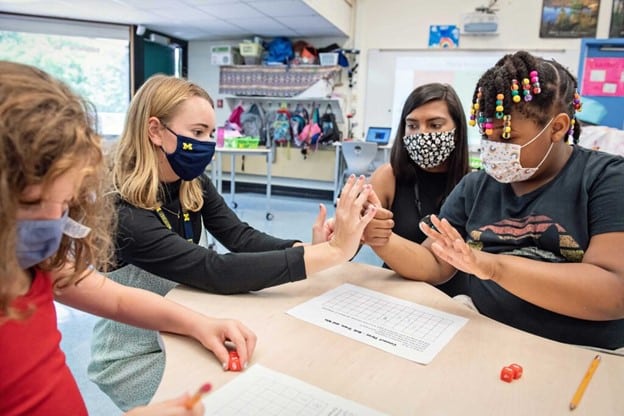
Students in the Master of Arts with Elementary Teacher Certification program work with elementary school students at Ann Arbor Open School in July 2021. Image credit: Leisa Thompson
With a $14.7 million gift, University of Michigan alumna Eileen Lappin Weiser will establish a new center at the U-M School of Education to make learning accessible to all youth.
Her gift, representing the largest commitment in the School of Education’s 100-year history, will help reshape teaching and learning to meet the needs of all different kinds of learners and prepare them for the jobs of the future.
The Eileen Lappin Weiser Learning Sciences Center will strengthen the connections between research and practice by engaging numerous partners to study the many places and ways that learning happens. This will involve the design and testing of curricula for diverse learners, collaboration with teachers and administrators to promote evidence-based practices, and efforts to scale successful education solutions to be available to all learners.
08 Feb2022
By Anthony Webster
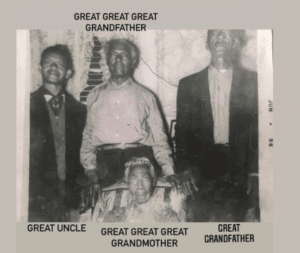
This post is part of AACTE’s Black History Month 2022 Blog series.
Every February, during Black History Month, we celebrate the countless contributions and achievements of notable Black inventors, educators, lawyers, and politicians from over the years. However, as I reflect, I remember to pay homage to the heroes and sheroes in my life who sacrificed to create a better tomorrow, from the Black teachers who inspired me during my PK-12 journey to the Black professors at my HBCU (Jackson State) who saw my potential and pushed me beyond my comfort zone. Because of them, I knew that getting to this point was possible.








 AACTE continues its collaboration with AERA’s Division K: Teaching and Teacher Education to produce an in-depth, scaffolded, three-part series of professional learning opportunities addressing the recent uptick in education censorship across the nation. The first presentation of the series took place as a Deeper Dive session during AACTE’s Annual Meeting in New Orleans. On April 12, AACTE and AERA Division K will co-host a workshop:
AACTE continues its collaboration with AERA’s Division K: Teaching and Teacher Education to produce an in-depth, scaffolded, three-part series of professional learning opportunities addressing the recent uptick in education censorship across the nation. The first presentation of the series took place as a Deeper Dive session during AACTE’s Annual Meeting in New Orleans. On April 12, AACTE and AERA Division K will co-host a workshop:  The Colleges of Education: A National Portrait is AACTE’s signature report on schools, colleges, and departments of education. The
The Colleges of Education: A National Portrait is AACTE’s signature report on schools, colleges, and departments of education. The  Today, AACTE (American Association of Colleges for Teacher Education) releases the second edition of Colleges of Education: A National Portrait. In addition to updating information on colleges of education and their leaders, faculty, and students, this edition features a special analysis on the
Today, AACTE (American Association of Colleges for Teacher Education) releases the second edition of Colleges of Education: A National Portrait. In addition to updating information on colleges of education and their leaders, faculty, and students, this edition features a special analysis on the  This weekly Washington Update is intended to keep members informed on Capitol Hill activities impacting the educator preparation community. The views expressed in this post do not necessarily reflect the views of AACTE.
This weekly Washington Update is intended to keep members informed on Capitol Hill activities impacting the educator preparation community. The views expressed in this post do not necessarily reflect the views of AACTE. 
 AACTE will soon release the second edition of its signature report, Colleges of Education: A National Portrait. In addition to updating information on colleges of education and their leaders, faculty, and students, this edition features a special analysis on the contributions that community colleges make to educator preparation. Topics to be covered will include:
AACTE will soon release the second edition of its signature report, Colleges of Education: A National Portrait. In addition to updating information on colleges of education and their leaders, faculty, and students, this edition features a special analysis on the contributions that community colleges make to educator preparation. Topics to be covered will include: Claflin University is pleased to have been invited by AACTE to help celebrate Black History Month. Founded in 1869, primarily to educate freed slaves, Claflin was the first historically Black college/University (HBCU) in South Carolina to open its doors to all people – regardless of race, class, gender, and/or any of the other social constructs that have been divisive across many components of society. For over 150 years, Claflin has remained committed to her mission, one in which diversity and inclusion are central to the development of visionary leaders and scholars in their chosen fields of study. At Claflin, our belief is that our graduates will make their marks on the world by leading innovative changes in various industries and professions across the globe.
Claflin University is pleased to have been invited by AACTE to help celebrate Black History Month. Founded in 1869, primarily to educate freed slaves, Claflin was the first historically Black college/University (HBCU) in South Carolina to open its doors to all people – regardless of race, class, gender, and/or any of the other social constructs that have been divisive across many components of society. For over 150 years, Claflin has remained committed to her mission, one in which diversity and inclusion are central to the development of visionary leaders and scholars in their chosen fields of study. At Claflin, our belief is that our graduates will make their marks on the world by leading innovative changes in various industries and professions across the globe. Claflin University is located in the small city of Orangeburg, South Carolina and is affiliated with the United Methodist Church. It is accredited by the Southern Association of Colleges and Schools Commission on Colleges (SACSCOC) and approved by the University Senate of the United Methodist Church. Among her numerous accolades, Claflin is ranked the #1 HBCU in the state, and for its 11th consecutive year, the University is in U.S. News & World Report’s “Top 10 of the Nation’s Best HBCUs.” As the oldest HBCU in the state of South Carolina, Claflin University’s commitment to teacher eucation has been consistently strong since its founding. She has produced teachers, principals, superintendents, and numerous other educational professionals who have made significant contributions to the myriad classrooms and other educational contexts within the state of SC and indeed across the United States and the world at large.
Claflin University is located in the small city of Orangeburg, South Carolina and is affiliated with the United Methodist Church. It is accredited by the Southern Association of Colleges and Schools Commission on Colleges (SACSCOC) and approved by the University Senate of the United Methodist Church. Among her numerous accolades, Claflin is ranked the #1 HBCU in the state, and for its 11th consecutive year, the University is in U.S. News & World Report’s “Top 10 of the Nation’s Best HBCUs.” As the oldest HBCU in the state of South Carolina, Claflin University’s commitment to teacher eucation has been consistently strong since its founding. She has produced teachers, principals, superintendents, and numerous other educational professionals who have made significant contributions to the myriad classrooms and other educational contexts within the state of SC and indeed across the United States and the world at large. The AACTE Diversified Teacher Workforce Topical Action Group (TAG) will convene Pk-20 practitioners, researchers, and community stakeholders to discuss how to bolster collective efforts to recruit, sustain and retain teachers of color. The preconference event will take place on Thursday, March 3 at the Sheraton New Orleans Hotel, Grand Ballroom B, 9:00 a.m. – 3:30 p.m.
The AACTE Diversified Teacher Workforce Topical Action Group (TAG) will convene Pk-20 practitioners, researchers, and community stakeholders to discuss how to bolster collective efforts to recruit, sustain and retain teachers of color. The preconference event will take place on Thursday, March 3 at the Sheraton New Orleans Hotel, Grand Ballroom B, 9:00 a.m. – 3:30 p.m.  This post is part of AACTE’s Black History Month 2022 Blog series.
This post is part of AACTE’s Black History Month 2022 Blog series. This month, AACTE launched its
This month, AACTE launched its 
